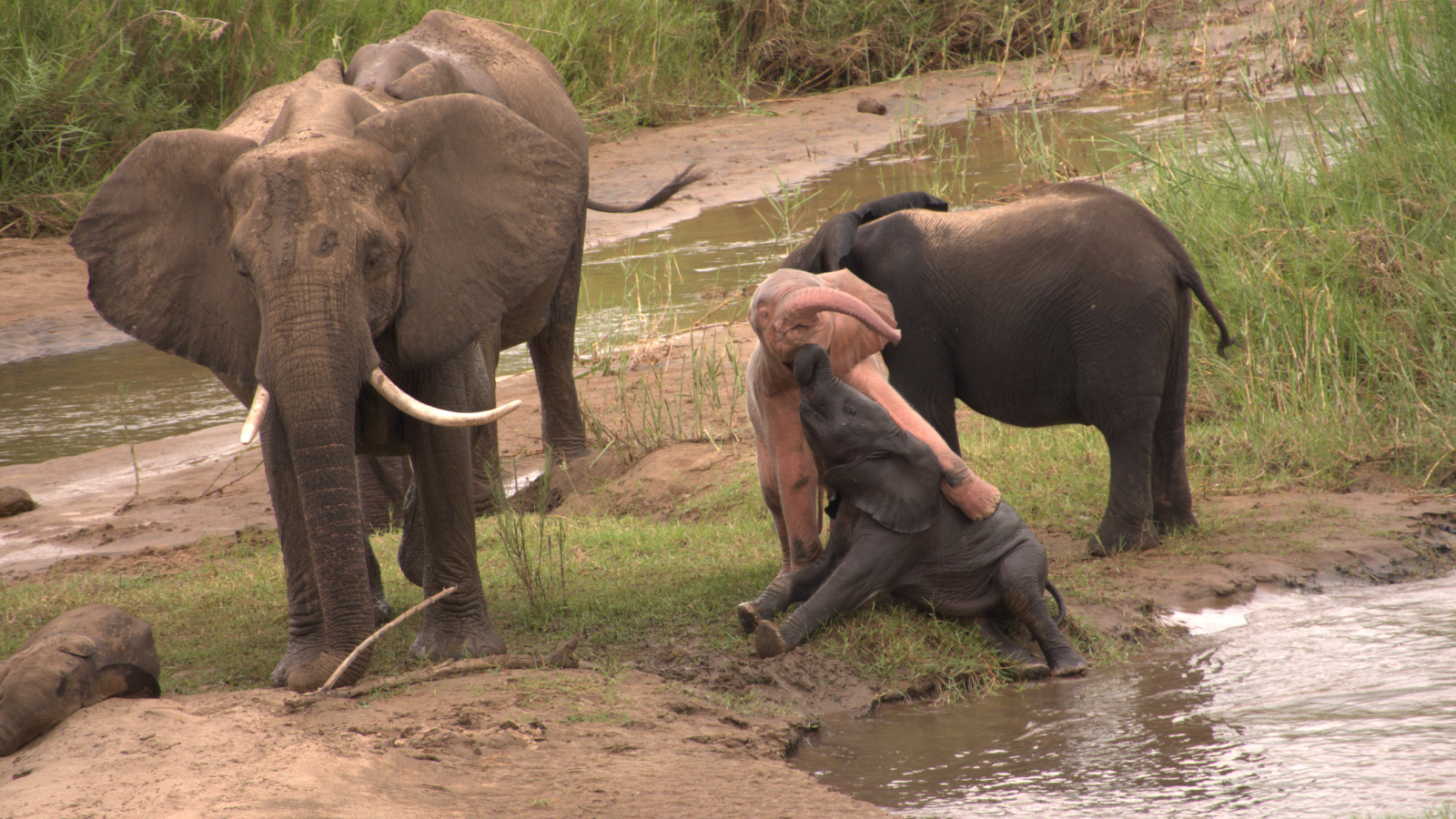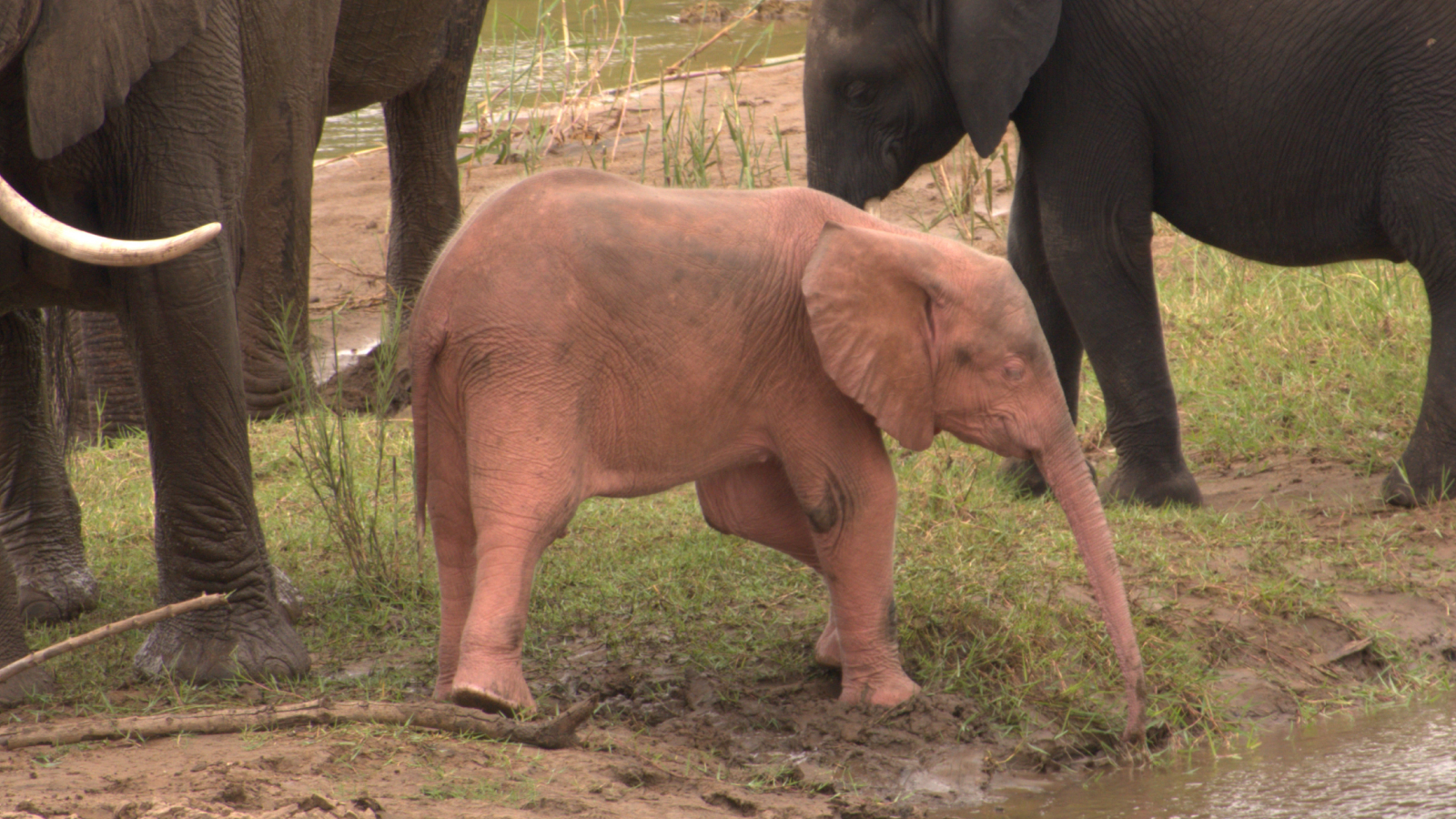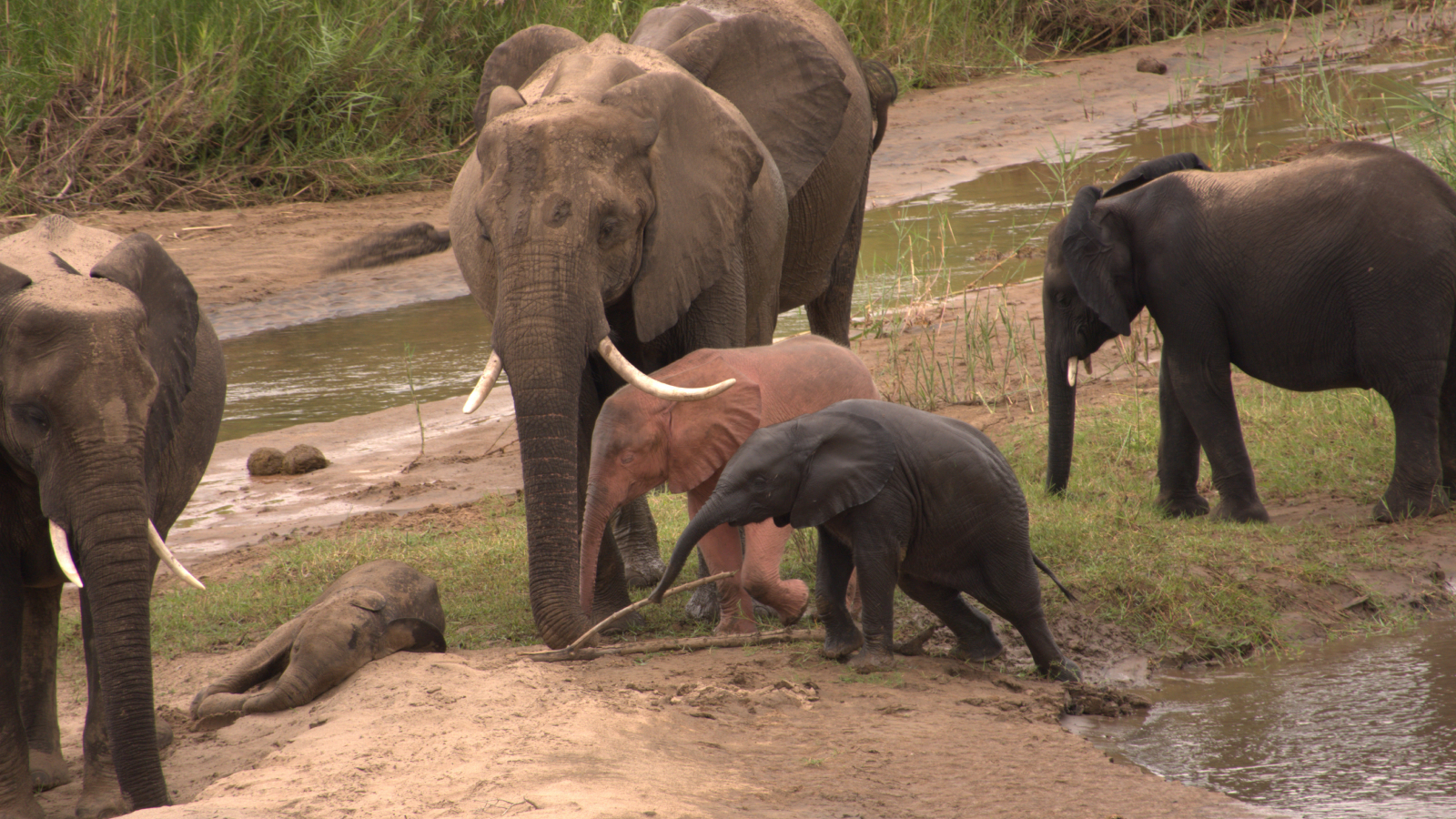Watch a rare pink albino elephant baby playing by a waterhole in adorable footage
The adorable 1-year-old male calf was filmed enjoying playtime in Kruger National Park in South Africa.
Heartwarming footage has captured a rare pink elephant playing with another calf in a waterhole in Kruger National Park, South Africa.
Elephants are typically gray, but this small calf, which belongs to the genus Loxodonta, has pink skin and fair hair, as a result of an inherited condition called albinism — a genetic disorder that stops the production of a molecule called melanin that is responsible for pigment in the eyes, hair and skin.
The rare condition "only occurs once in every 10,000 births" of wild mammals, Theo Potgieter, a safari operator who captured the image of the young elephant, said in an email to Live Science.
Related: Rarest of rare: 2 albino egg-laying mammals spotted in Australia

According to Potgieter, the elephant is estimated to be around 1 year old, with sightings reported of the young male since late last year.
Albinism is a rare condition because it is recessive and only presents itself when both parents carry the mutated gene and pass it onto their offspring.

The condition causes poor eyesight. The lack of pigment interrupts the development of the eyes, which can affect an animal's ability to forage for food or successfully track and hunt prey. The absence of coloured fur, scales or skin, meanwhile, means they often lose their ability to camouflage against their environment, making it harder to hide from predators or prey.
Sign up for the Live Science daily newsletter now
Get the world’s most fascinating discoveries delivered straight to your inbox.

In addition, previous research in catfish indicated that animals with albinism are sometimes ostracized by members of the same species, which can lead individuals to have a solitary existence.
However, in the same national park, Potgieter has seen albinism in an elephant calf before and said both calves were seemingly fully accepted among the herd. "In both recent sightings of two different individuals, the rest of the herd seemed to be very protective and patient with the presence of these young individuals," said Potgieter.
"It is always a privilege to be able to witness these extremely rare and special animals," Potgieter said.

Elise studied marine biology at the University of Portsmouth in the U.K. She has worked as a freelance journalist focusing on the aquatic realm. Elise is working with Live Science through Future Academy, a program to train future journalists on best practices in the field.









